9 Best Herbal Tinctures For Post Nasal Drip
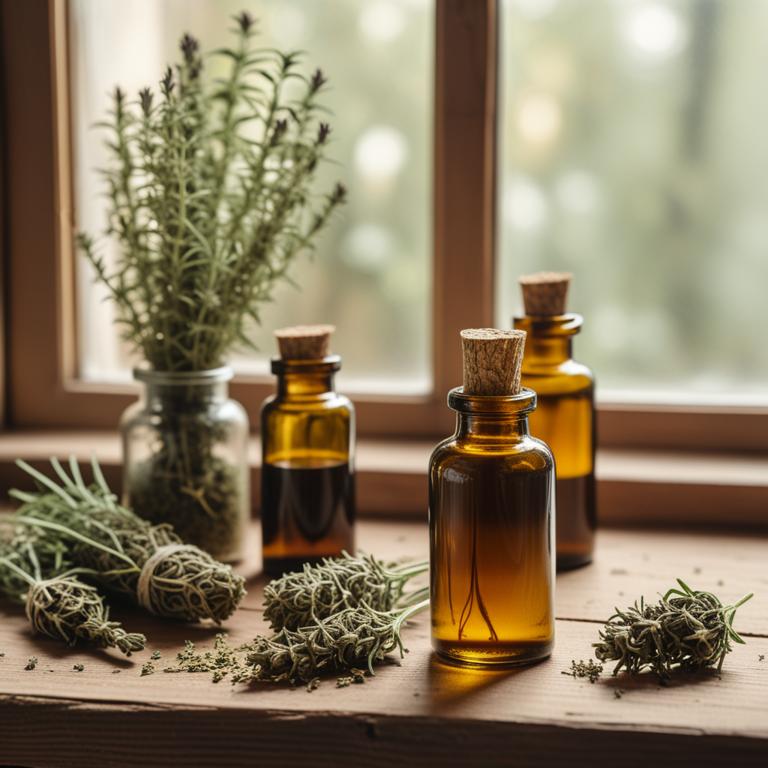
Herbal tinctures for post nasal drip are a natural and holistic approach to treating the uncomfortable and annoying symptoms associated with excess mucus production in the nasal passages.
These concentrated liquid extracts are made from various herbs, plants, and botanicals that have been traditionally used to soothe, dry, and clear the nasal passages, providing relief from congestion, coughing, and sinus pressure.
Some of the most effective herbal tinctures for post nasal drip include Echinacea, which boosts the immune system and reduces inflammation; Eucalyptus, which opens up airways and eases congestion; Ginger, which has anti-inflammatory properties and helps to dry up mucus; Peppermint, which cools and soothes the nasal passages; Sage, which helps to clear mucus and reduce inflammation; Slippery Elm, which soothes and protects the mucous membranes; and Thyme, which has antimicrobial properties and helps to combat infections.
By using these herbal tinctures, individuals can find natural relief from post nasal drip and enjoy a healthier, more balanced respiratory system.
According to "American journal of otolaryngology", tinctures for post nasal drip may be effective in reducing its symptoms, as the study on BNO 1012 extract showed a clinically significant reduction in the severity of rhinorrhea, nasal congestion, and post-nasal drip in children with acute rhinosinusitis.
Below there's a list of the 9 best herbal tinctures for post nasal drip.
- 1. Eucalyptus globulus tinctures
- 2. Ulmus rubra tinctures
- 3. Althaea officinalis tinctures
- 4. Echinacea purpurea tinctures
- 5. Thymus vulgaris tinctures
- 6. Echinacea angustifolia tinctures
- 7. Rosmarinus officinalis tinctures
- 8. Ginkgo biloba tinctures
- 9. Salvia officinalis tinctures
Also you may be interested in...
TODAY'S FREE BOUNDLE
Herb Drying Checklist + Herbal Tea Shopping List + Medicinal Herbs Flashcards
Enter you best email address below to receive this bundle (3 product valued $19.95) for FREE + exclusive access to The Aphotecary Letter.
$19.95 -> $0.00
1. Eucalyptus globulus tinctures
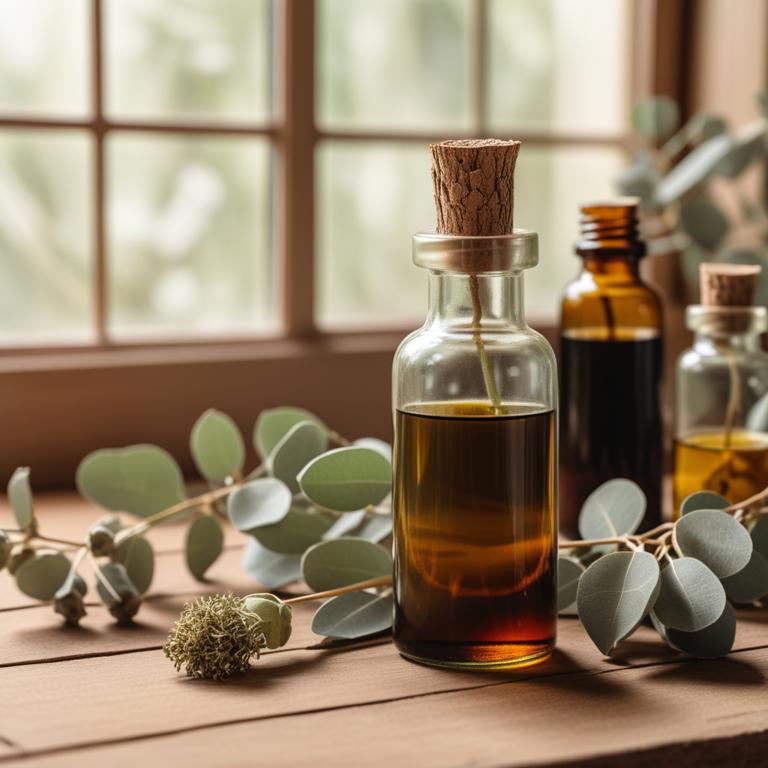
Eucalyptus globulus tinctures have been traditionally used to treat post nasal drip, a condition characterized by the excessive flow of mucus from the nasal passages.
The antiseptic and decongestant properties of eucalyptus globulus tinctures help to reduce inflammation and congestion in the nasal passages, providing relief from the symptoms of post nasal drip.
The bioactive constituents of eucalyptus globulus tinctures, including cineole and eucalyptol, have been shown to exhibit antimicrobial and anti-inflammatory properties, which contribute to its effectiveness in treating post nasal drip.
By using eucalyptus globulus tinctures, individuals can benefit from its natural and non-invasive approach to treating post nasal drip, which can help to alleviate symptoms and promote overall respiratory health.
Related Study
According to the Turkish archives of otorhinolaryptology, Eucalyptus globulus tinctures, part of the herbal preparation Sinulan forte, showed significantly lower absolute post-treatment scores and better relative improvement for postnasal drip compared to mometasone furoate nasal spray therapy in patients with acute postviral rhinosinusitis.
2. Ulmus rubra tinctures
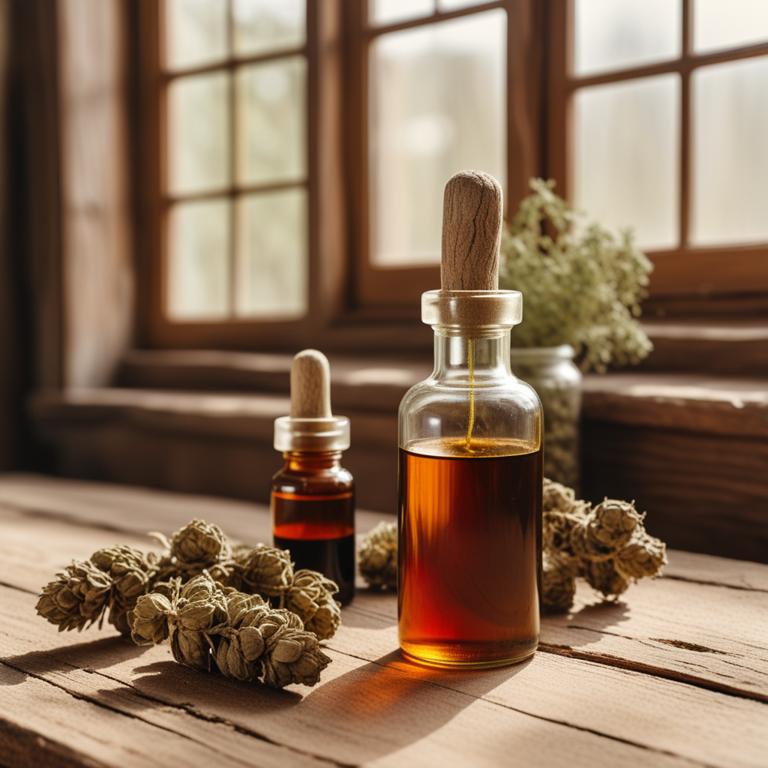
Ulmus rubra tinctures have been traditionally used to treat postnasal drip, a condition characterized by the excessive flow of mucus from the nasal passages.
The properties of this herbal preparation, such as its astringent and anti-inflammatory properties, help to reduce the production of mucus and alleviate congestion.
The bioactive constituents of Ulmus rubra tinctures, including flavonoids and phenolic acids, help to inhibit the growth of pathogens and reduce inflammation in the nasal passages, thereby alleviating symptoms of postnasal drip.
The benefits of using Ulmus rubra tinctures to treat postnasal drip include reduced mucus production, improved breathing, and relief from associated symptoms such as coughing and sneezing.
3. Althaea officinalis tinctures
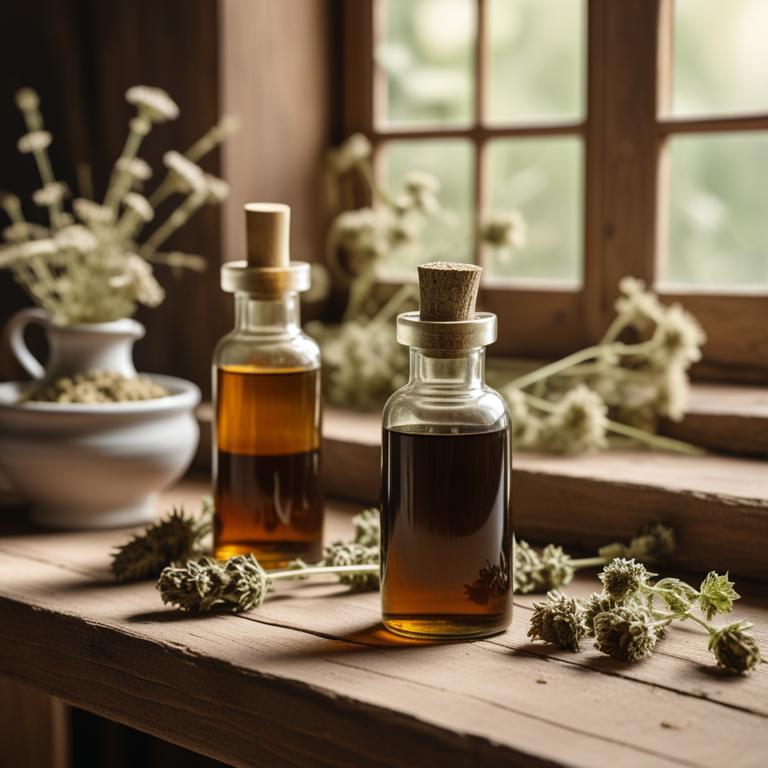
Althaea officinalis tinctures have been traditionally used to treat postnasal drip, a common affliction characterized by excessive mucus production and nasal congestion.
The mucilages present in Althaea officinalis tinctures help to soothe and protect the mucous membranes, reducing inflammation and promoting the clearance of excess mucus.
The bioactive constituents of Althaea officinalis, such as mucilage, flavonoids, and phenolic acids, contribute to its therapeutic properties, including anti-inflammatory and expectorant effects.
By using Althaea officinalis tinctures, individuals can experience relief from postnasal drip symptoms, including reduced congestion, improved breathing, and enhanced overall well-being.
Related Study
According to "American journal of otolaryngology", Althaea officinalis tinctures for post nasal drip may be beneficial in reducing its severity, as part of a five-plant extract (BNO 1012) was shown to provide a clinically significant reduction in post-nasal drip in children with acute rhinosinusitis.
4. Echinacea purpurea tinctures

Echinacea purpurea tinctures have been traditionally used to help alleviate symptoms of post nasal drip, a common condition characterized by the excessive flow of mucus from the nasal passages.
The anti-inflammatory and immunomodulatory properties of Echinacea purpurea tinctures may help to reduce inflammation and congestion in the nasal passages, thereby alleviating post nasal drip symptoms.
The bioactive constituents of Echinacea purpurea, including alkylamides, caffeic acid derivatives, and flavonoids, may contribute to its therapeutic effects by modulating the immune system and reducing inflammation.
By using Echinacea purpurea tinctures, individuals may experience relief from post nasal drip symptoms, as well as other benefits such as reduced congestion, improved respiratory function, and enhanced overall well-being.
Related Study
According to the study published in "Archives of family medicine", Echinacea purpurea tinctures may have a potential benefit in reducing the occurrence of upper respiratory tract infections, including post nasal drip, although the study itself could not show a significant prophylactic effect.
5. Thymus vulgaris tinctures
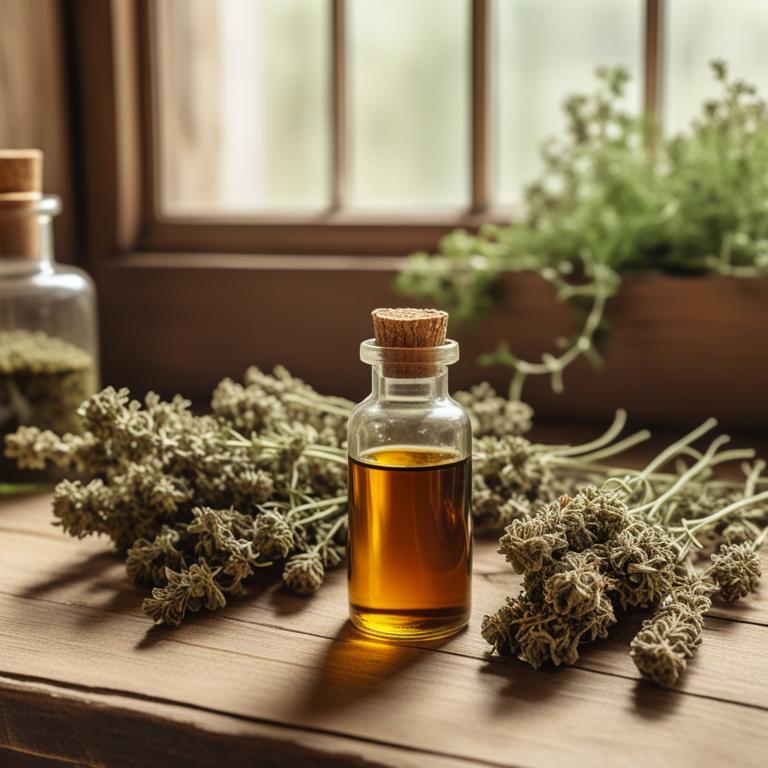
Thymus vulgaris tinctures are a popular herbal remedy used to treat post nasal drip, a condition characterized by excessive mucus production.
The antimicrobial and anti-inflammatory properties of thymus vulgaris tinctures help to reduce nasal congestion and alleviate symptoms.
The bioactive constituents, including thymol and carvacrol, have been shown to exhibit bronchodilatory effects, which help to clear mucus from the nasal passages and sinuses.
By using thymus vulgaris tinctures, individuals can benefit from its natural decongestant properties, reducing the frequency and severity of post nasal drip episodes.
Related Study
According to "Ceska a Slovenska farmacie : casopis Ceske farmaceuticke spolecnosti a Slovenske farmaceuticke spolecnosti", Thymus vulgaris tinctures may be used in combination with other medicinal plants to help treat upper respiratory tract catarrh, including post nasal drip, due to its antibacterial and antiseptic effects.
6. Echinacea angustifolia tinctures
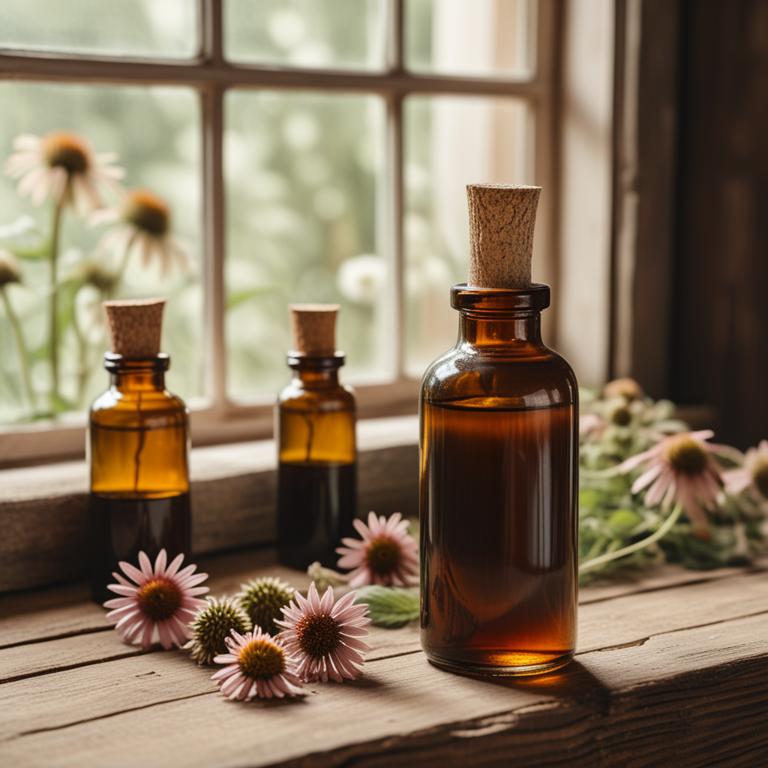
Echinacea angustifolia tinctures have been traditionally used to treat post nasal drip, a common ailment characterized by excessive mucus production.
The anti-inflammatory and immunomodulatory properties of this herbal preparation help to alleviate congestion and reduce mucus production, thereby providing relief from post nasal drip.
The bioactive constituents of Echinacea angustifolia, including alkylamides, glycosides, and caffeic acid, are responsible for its therapeutic effects, which include modulating the immune system and reducing inflammation.
By utilizing Echinacea angustifolia tinctures, individuals can benefit from a natural and non-invasive approach to managing post nasal drip, promoting overall respiratory health and well-being.
7. Rosmarinus officinalis tinctures
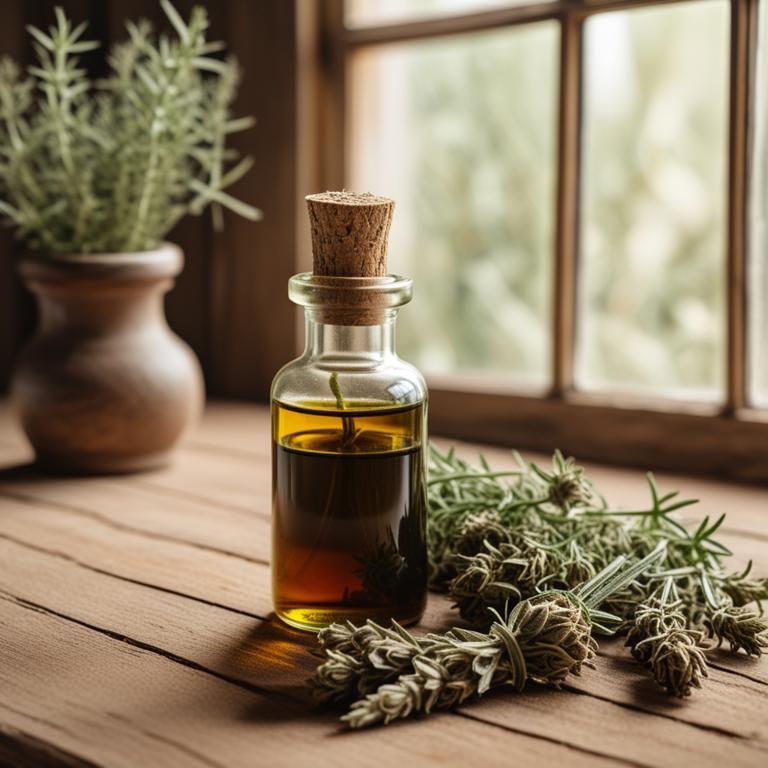
Rosmarinus officinalis tinctures have been traditionally used to treat post nasal drip due to their decongestant and expectorant properties, which help to relieve congestion and promote the drainage of mucus from the nasal passages.
The herbal preparation contains bioactive constituents such as rosmarinic acid, which has anti-inflammatory properties that help to reduce swelling and alleviate nasal congestion.
By reducing inflammation and promoting drainage, Rosmarinus officinalis tinctures help to alleviate the symptoms of post nasal drip, providing relief from discomfort and promoting overall respiratory health.
The benefits of using Rosmarinus officinalis tinctures to treat post nasal drip include natural and non-invasive relief, reduced risk of side effects, and long-term improvement in respiratory function.
8. Ginkgo biloba tinctures

Ginkgo biloba tinctures have been traditionally used to treat post nasal drip, a common condition characterized by excessive mucus production.
The anti-inflammatory and antihistaminic properties of Ginkgo biloba tinctures help to reduce swelling and alleviate congestion in the nasal passages.
The bioactive constituents of Ginkgo biloba, including flavonoids and terpenoids, work to thin mucus and promote its clearance from the nasal cavity, thereby providing relief from post nasal drip symptoms.
By using Ginkgo biloba tinctures, individuals can benefit from natural and effective relief from post nasal drip, without the risk of side effects associated with conventional medications.
Related Study
According to the study, Ginkgo biloba tinctures are part of a 5-plant extract (BNO 1012) that, in addition to standard symptomatic therapy, provides a clinically significant reduction in the severity of post-nasal drip, nasal congestion, and rhinorrhea in children with acute rhinosinusitis.
9. Salvia officinalis tinctures
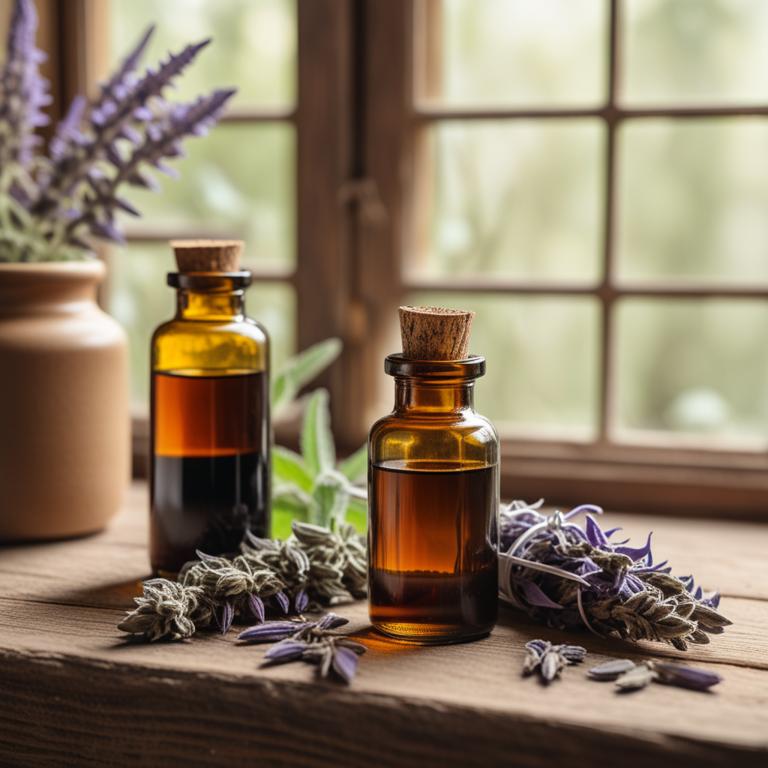
Salvia officinalis tinctures are a natural remedy used to alleviate post nasal drip symptoms, such as excessive mucus production and congestion.
The antitussive and expectorant properties of this herbal preparation help to relieve coughing and clear mucus from the nasal passages, providing quick relief from post nasal drip.
The bioactive constituents of Salvia officinalis, including rosmarinic acid and salvianolic acid, exhibit antioxidant and anti-inflammatory activities that contribute to its therapeutic effects, helping to reduce inflammation and soothe the nasal lining.
Regular use of Salvia officinalis tinctures has been shown to provide long-term benefits in managing post nasal drip, as it helps to regulate mucus production and promote a healthy respiratory system.
Related Study
According to the study published in "American journal of otolaryngology", Salvia officinalis tinctures, part of the BNO 1012 extract of five medicinal plants, were found to provide a clinically significant reduction in the severity of post-nasal drip when used in addition to standard symptomatic therapy for acute rhinosinusitis.